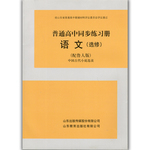题目内容
Today we’ll talk about the history of blue jeans. For many people, blue jeans stand for (代表) American culture.
The history of blue jeans usually began with a man named Levi Strauss. He did not invent jeans. But he is the first person to produce and sell them in large numbers. Levi Strauss was born in Germany. In 1847, he and his family moved to the United States. He opened a small store and sold jeans. These pants were especially useful for miners (矿工) in California. They needed strong clothing. Levi Strauss worked with Jacob Davis, who had invented a step for making rivets (铆钉) for jeans. They helped make the blue jeans stronger.
In 1873, Strauss and Davis received a patent (专利) to own this invention. Nineteenth century workers would probably be surprised to know that their pants would one day become fashions. Today, jeans are worn by people of all ages. Jeans come in many colors other than blue and in many styles and prices. Fashion designers even create very costly jeans.
Writer James published a book called Jeans: A Cultural History of an American Icon (偶像). In the book, he says jeans serve as a sign for two American values, creativity and rebellion (叛逆).
小题1: Why did Jacob use rivets for jeans?
小题2:Which of the following is WRONG about blue jeans?
小题3:The two American values are rebellion and _____________.
小题4:What’s the main idea of the passage?
The history of blue jeans usually began with a man named Levi Strauss. He did not invent jeans. But he is the first person to produce and sell them in large numbers. Levi Strauss was born in Germany. In 1847, he and his family moved to the United States. He opened a small store and sold jeans. These pants were especially useful for miners (矿工) in California. They needed strong clothing. Levi Strauss worked with Jacob Davis, who had invented a step for making rivets (铆钉) for jeans. They helped make the blue jeans stronger.
In 1873, Strauss and Davis received a patent (专利) to own this invention. Nineteenth century workers would probably be surprised to know that their pants would one day become fashions. Today, jeans are worn by people of all ages. Jeans come in many colors other than blue and in many styles and prices. Fashion designers even create very costly jeans.
Writer James published a book called Jeans: A Cultural History of an American Icon (偶像). In the book, he says jeans serve as a sign for two American values, creativity and rebellion (叛逆).
小题1: Why did Jacob use rivets for jeans?
| A.Because they made the blue jeans stronger. | B.Because they had a history. |
| C.Because they are fashionable. | D.Because they were dear. |
| A.Miners like to wear strong clothing. |
| B.Jeans have only one color — blue. |
| C.James wrote a book about jeans. |
| D.Levi Strauss is the first person to produce jeans in large numbers. |
| A.protection | B.ambition | C.friendship | D.creativity |
| A.Jeans are popular. | B.Jeans become fashions. |
| C.The history of blue jeans. | D.Levi Strauss was a German. |
小题1:A
小题1:B
小题1:D
小题1:C
小题1:根据Levi Strauss worked with Jacob Davis, who had invented a step for making rivets (铆钉) for jeans. They helped make the blue jeans stronger. 可知这些铆钉让牛仔裤更结实,故选A。
小题1:根据Jeans come in many colors other than blue and in many styles and prices.描述,可知选B。
小题1:根据In the book, he says jeans serve as a sign for two American values, creativity and rebellion (叛逆).描述,可知选D。
小题1:这篇短文主要描述了牛仔裤的发展历史,故选C,蓝色牛仔裤的历史。

练习册系列答案
 海淀黄冈名师导航系列答案
海淀黄冈名师导航系列答案 普通高中同步练习册系列答案
普通高中同步练习册系列答案
相关题目
